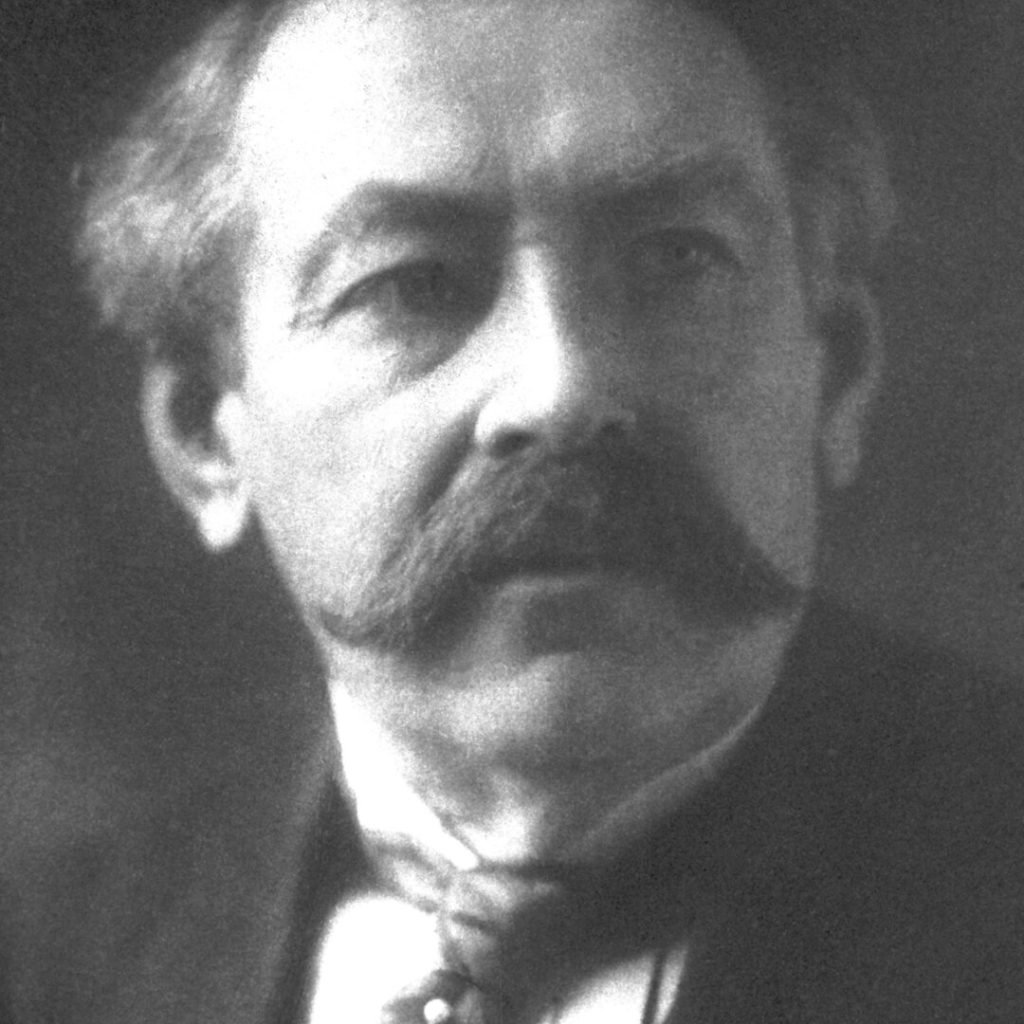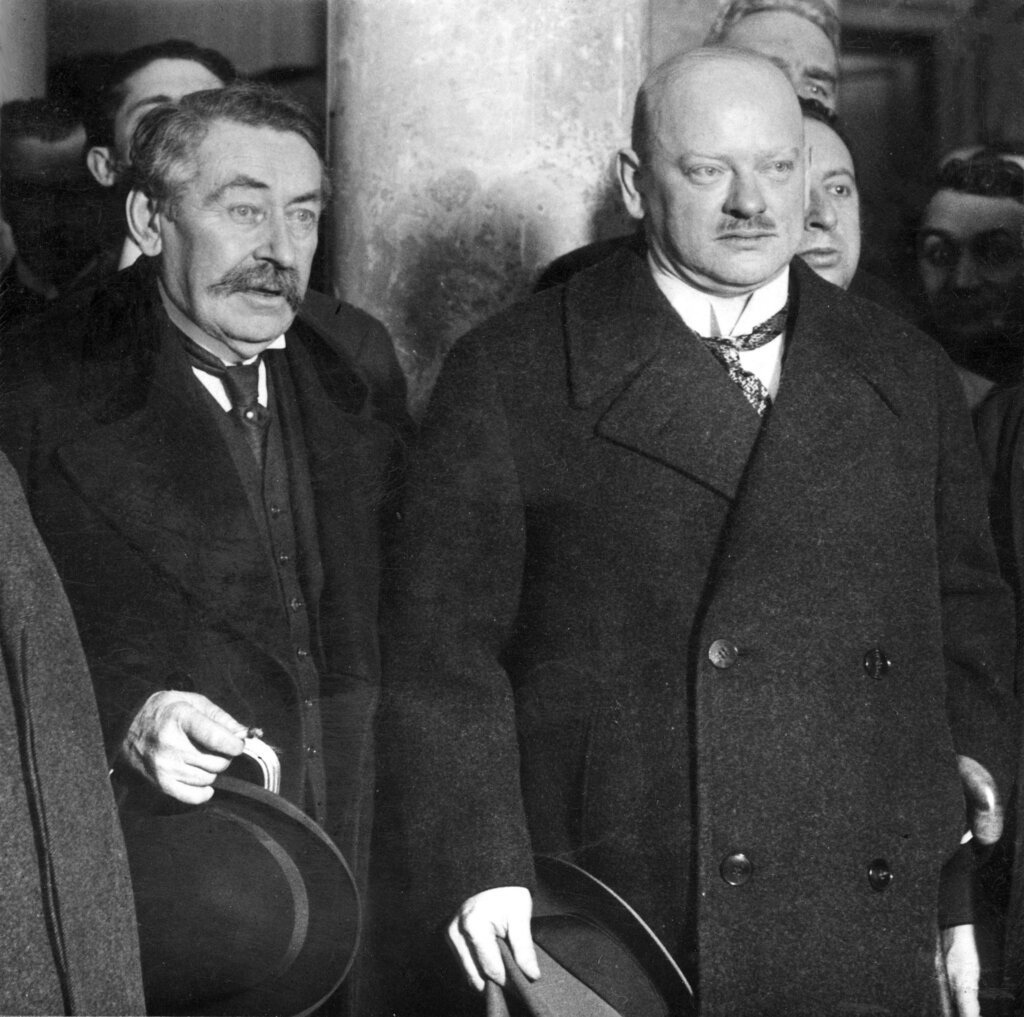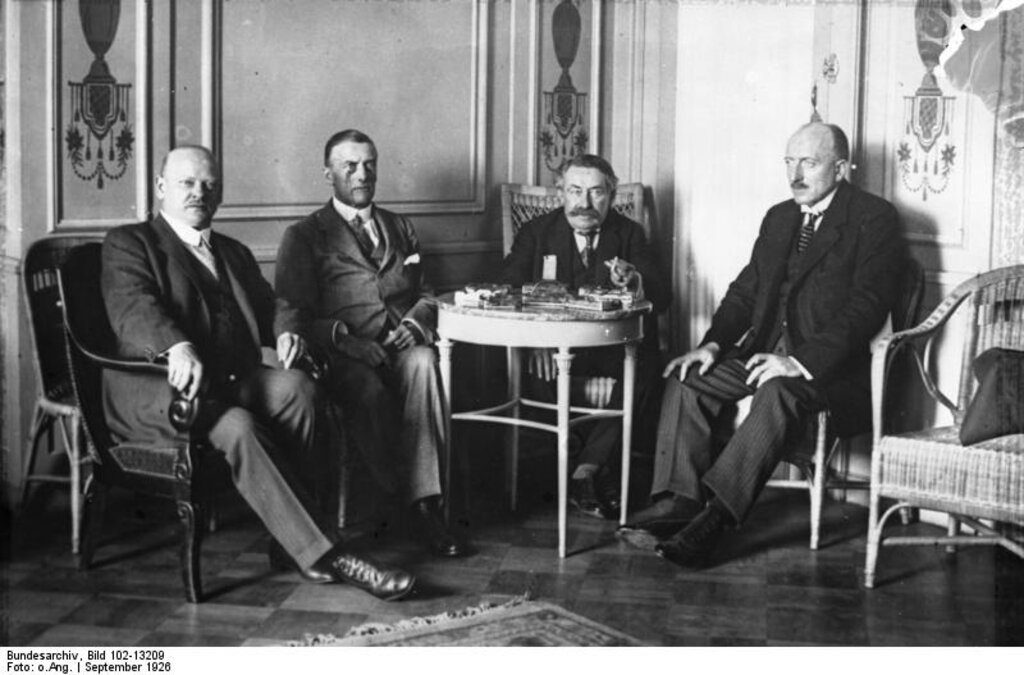Aristide Briand
Speed read
Aristide Briand was awarded the Nobel Peace Prize, jointly with Gustav Stresemann, for his crucial role in negotiating the Locarno Treaty.

Full name: Aristide Briand
Born: 28 March 1862, Nantes, France
Died: 7 March 1932, Paris, France
Date awarded: 10 December 1926
Reconciliation with Germany
Aristide Briand shared the Nobel Peace Prize with Gustav Stresemann of Germany for their efforts to reconcile Germany and France in the wake of WWI. Due to the huge losses suffered by France during the war, Briand felt strongly that a peace accord must not lay the foundation for a revanchist war. Thus, he opposed the harsh treatment of the Germans after the war. Briand also criticised France’s attempt to obtain its war reparations by force when it sent troops into Germany. In 1925 Briand became foreign minister. The same year he signed the Locarno Pact with Germany, in which Germany recognized the French-German border as it was drawn after the war. In return, Germany was allowed to join the League of Nations and France withdrew its occupying forces.

”No recognition could be more precious to me than this, which now crowns the most important effort of my public life, one I have dedicated in every way within my power to the realization of your ideal of peace.”
Aristide Briand, Telegram to the Nobel Committee, 10 December 1926.
Shocked by WWI devastation
As prime minister, Aristide Briand visited the front lines during WWI, where he was shocked over the French losses. After the Allies won the war in 1918, he feared German revanchist thinking. “Germany is a nation of 70 million people and tremendous industrial potential. The cannon destroyed yesterday can be rebuilt tomorrow,” he stated. Briand believed that reconciliation with Germany, disarmament, arbitration and collective security through the League of Nations were the best means of achieving lasting peace.

”During the negotiations … Briand … strongly urged the necessity of guarantees to provide security against aggression and war.”
Fridtjof Nansen, Presentation Speech, 10 December 1926.
Briand-Kellogg pact against war
After Briand had achieved reconciliation with Germany in 1925, he continued his efforts to ensure France’s security. In 1927 he sought to gain the support of US Secretary of State Frank Kellogg for a bilateral agreement guaranteeing US support for France should a new war against Germany break out. However, the agreement ultimately entered into was a less specific, multilateral agreement prohibiting wars of aggression. The Briand-Kellogg Pact was signed in Paris in 1928, but it proved to be ineffective. Briand also devised a proposal for a European union, but it was not taken seriously by other state leaders.
”As I listened I felt my love for France justified, for in Briand’s words I heard the voice of all that is noblest and most generous in the soul of the French nation.”
Austen Chamberlain, Down the Years, page 184, Casell 1935.
Learn more
Aristide Briand, while at the height of his influence within the League of Nations, attended a dinner in Geneva where the guests were given menu cards on which was printed a cartoon depicting the statesmen of the world smashing a statue of Mars ...
Disclaimer: Every effort has been made by the publisher to credit organisations and individuals with regard to the supply of photographs. Please notify the publishers regarding corrections.
Nobel Prizes and laureates
Six prizes were awarded for achievements that have conferred the greatest benefit to humankind. The 14 laureates' work and discoveries range from quantum tunnelling to promoting democratic rights.
See them all presented here.
